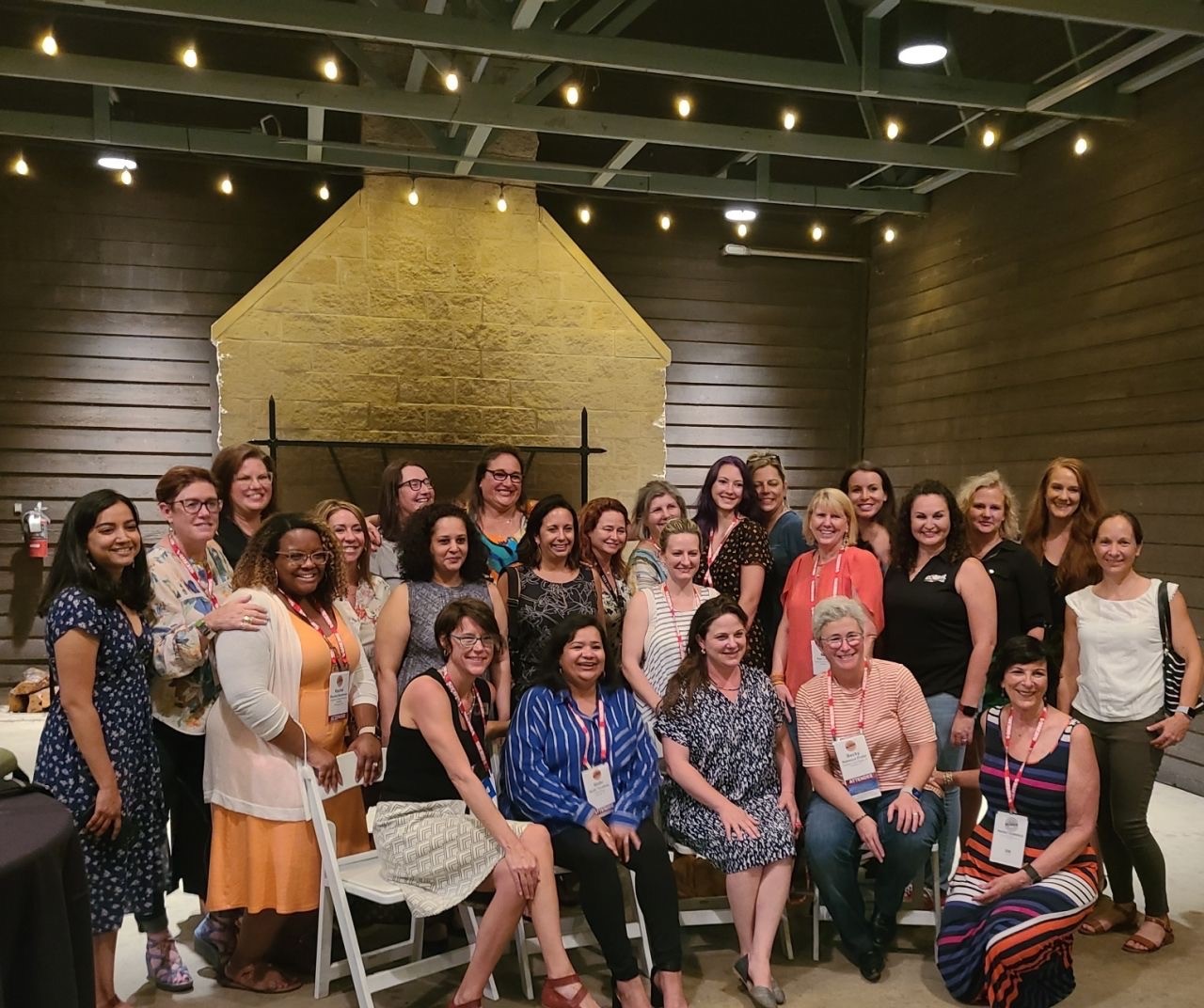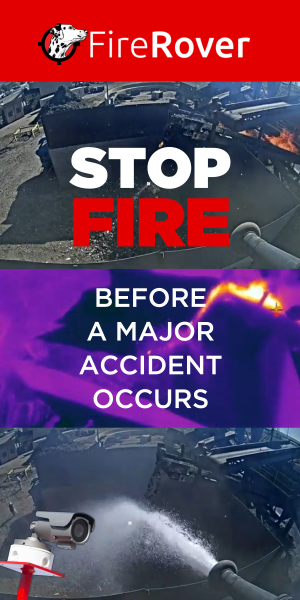Like many in the recycling community, Paula Murphy, Director of Strategic Partnerships at Pittsburgh-based equipment lease financing company Vision Financial Group, Inc. and co-chair of the ISRI Women in Recycling Council, knew about the unofficial mentoring in the recycling industry. “There are people who have been in the business for a long time who are quick to take less experienced people under their wings and explain how things are done,” she says. Along with former WIR co-chairs Nidhi Turakhia, executive vice president of Houston-based Allied Alloys, and Brandi Harleaux, chief executive officer of South Post Oak Recycling Center in Houston, Murphy wanted to make things a bit more official.
“I had a lunch meeting with Brandi and Nidhi two or three years ago and we started talking about a mentorship program,” Murphy recalls. At the meeting, Murphy shared her earlier involvement in the Women in Propane Council’s mentorship program. Seeing the similarities between propane and recycling, the recyclers thought it would be a good opportunity to formalize a similar program for their industry.
By the time Madelaine Shiff, senior account manager at Richmond, Va.-based sustainable cold chain packaging firm TemperPack, joined WIR, the mentorship subcommittee was coming to fruition. She expressed interest to Murphy about becoming a co-chair of the subcommittee. “Paula and I did some work and research on questions for mentors and mentees to discuss,” Shiff says. “We talked to people who were involved in programs at other organizations and collected a lot of data, bounced ideas off each other, and worked collaboratively to iterate and iterate until we had something we were comfortable with.”
They learned early on that finding the right mentor-mentee match is crucial to a good mentorship program. When crafting the questionnaire, the co-chairs included questions that would get at the heart of what each participant wanted to get out of the program. “We got a feel of what people were looking for and, as we compared mentor and mentee responses, we were able to see some really fantastic matches,” Shiff says. “We could match people who wanted to learn more about the finance side of the business as mentees with mentors who had a lot of experience in that sector.”
Turakhia co-chairs the subcommittee with Shiff after Murphy stepped into her new role as WIR co-chair. But Turakhia had no trouble getting caught up to speed in the mentor-mentee matching process. In fact, she found it straightforward to comb through the responses because participants provided detail. “We saw similarities very early on, and the answers were so thought-out,” she says. “It was pretty impressive.”
Mylinda Jacobsen, the global director of purchasing at The Woodlands, Texas-based circular chemicals supplier Encina, has nothing but praise for Shiff, who is her mentee. After finding out at their first meeting that Shiff wanted to learn more about sustainability, Jacobsen made sure to incorporate the topic into each subsequent session. “She’s got a thirst to learn,” Jacobsen says. “Even if we’re having work problems, I can bounce things off of her and she does the same for me.” She’s been able to use things she’s learned from Shiff in her work and appreciates the different perspective her mentee brings to their conversations.
Since getting matched with his mentee, Brian Shine, immediate past chair of ISRI and CEO of Lancaster, N.Y.-based Manitoba Corp., has found the experience a great opportunity to give back. “In this industry it’s critically important for younger people to connect with mentors as they launch their career because there’s so much to learn,” he says. His conversations with his mentee, Rochelle Stoddard, owner and president of Jacksonville, Fla.-based Berman Brothers, have grown into a two-way dialogue that’s beneficial to both. Shine hopes Stoddard comes away with more knowledge and resources to help her grow in her career. “She hasn’t had a lot of involvement with ISRI national to date,” he says. “But I’m hoping as a result of this program she’ll get more involved because she would be a great mentor.”
Like other participants, when Katie Ilecki began meeting with her mentor, Turakhia, the two quickly realized how easily the conversation flowed. Recognizing they could learn from each other, Turakhia suggested they become co-mentors. “On a professional level, I felt like she was more of a peer than someone I needed to mentor or coach,” Turakhia recalls. Since the first meeting Ilecki has become a sounding board for Turakhia to discuss various work concerns. “We can share things that typically I don’t think I’d be able to if it was a mentor-mentee relationship,” she adds.
Ilecki didn’t mind the change to being co-mentors at all. She thinks they work so well together because their backgrounds and locations are different. “Being from different demographics means we can support each other with issues like legislation. And we have different approaches to problems because of our unique backgrounds. I was a teacher before coming into the industry, so I try certain creative approaches problem-solving. When I make those suggestions [to Nidhi] she’s told me she hadn’t considered those approaches before.”
Her relationship with Turakhia has helped her navigate her role as assistant general manager. “[Nidhi has] done really well in the industry and is able to help me focus on some of the bigger picture issues and help me through some of the ‘firsts’ of everything I’m experiencing because I’m constantly being introduced to new day-to-day problems,” Ilecki says. “Her tenure with her job is helping me get through my growth spurts.”
Though coming from the equipment side of the industry, Melissa Tally, marketing manager at Gold Hill, Ore.-based machinery supplier SWEED, has become co-mentors with her program match, Jordan Vexler of San Antonio-based Monterrey Iron and Metal. “Going into the program, I didn’t even consider the possibility of being a co-mentor,” she recalls. “I thought ‘I’m the one who’s green, I need to learn more about the industry.’ But the takeaways have been great. We’re both in leadership roles in our respective companies and have a lot of commonalities.”

Lacking a direct background in recycling, Tally was excited to join the program not just to grow her career but also to learn more about the industry. “My mentor is a recycler, so learning her perspective of the operations and the challenges her company goes through is so invaluable to understand,” she says. “The personal aspect of [the program] has fostered a very open and honest dialogue between us.”
Tally recommends anyone who is considering becoming a mentor, mentee, or co-mentor in the program next year should go for it. “If it feels like something you should be a part of then you should do it, and I say that because I didn’t hesitate, and I’ve never regretted it,” she says. “There’s a place for everyone.”
Karen Bichin, community relations manager for Burnaby, British Columbia-based ABC Recycling, agrees with Tally’s recommendation. “Seize the opportunity,” she says. “It’s only going to help you enhance and grow your career.” She was happy to take part in program as a mentee and work with her mentor, Becky Proler, president of Houston, Texas-based Southern Core Recycling (SCR), because she felt a lack of female role models in her company. “I believe there’s always opportunities for learning new things and the more people you connect with the better, so I figured why not?”
When thinking about the program’s future, Turakhia hopes the current mentors and mentees will form lifelong relationships with one another even after their participation in the program concludes.
Murphy seconds Turakhia’s hope that the mentorship program will continue growing for years to come. “We hope [the program] inspires current mentees to join again later as mentors,” she says. “One of WIR’s pillars is to build future leaders and a pipeline of future leaders. This program provides an avenue to do that.”
Soon after the ISRI2022 convention next March in Las Vegas, WIR leadership aims to match a new group of participants for the program.
Featured image caption: WIR Reception at ISRI’s Gulf Coast Convention, June 2021. Body image caption: Jordan Vexler (left) and Kari Coffey (right) participate in WIR panel at ISRI’s Gulf Coast Convention, June 2019.













